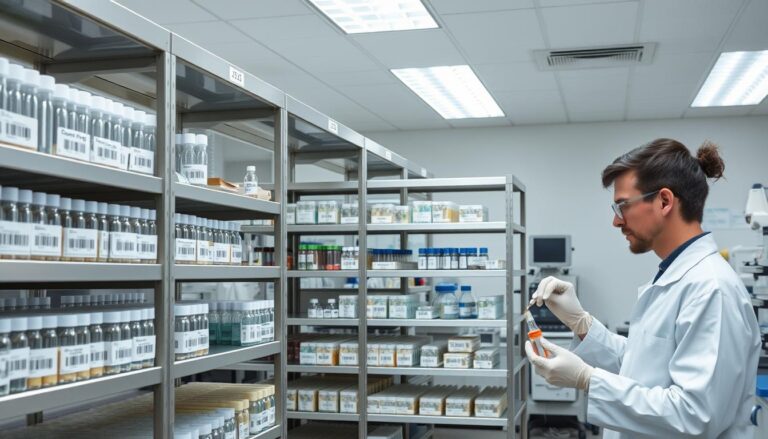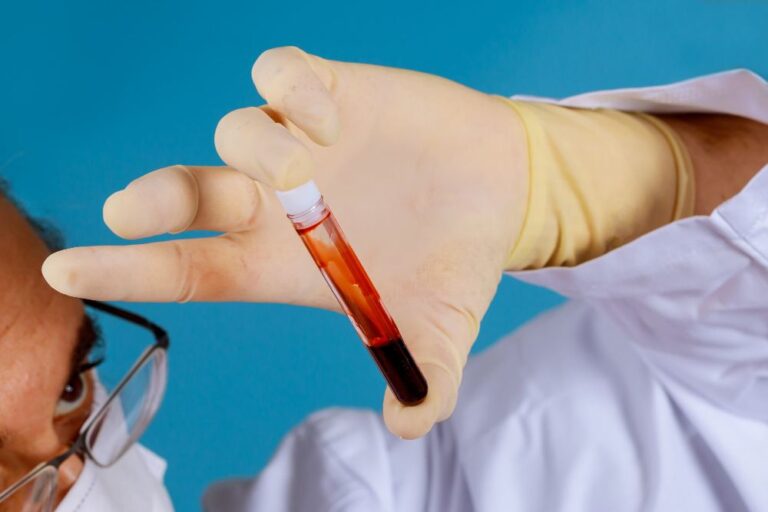How Long Does Blood Work Take? A Complete Timeline Guide
Ever wondered how long it takes to get your blood test results? The time it takes can change a lot. It depends on the test type, where the lab is, and more. In this guide, we’ll dive into the blood work process. This will help you know what to expect.

Ever thought, “How long does it really take to get blood test results?” This is a question many ask. The answer might surprise you. The time for blood work can be anywhere from a few minutes to weeks, based on the test.
At our diagnostic centre in Yelahanka, we provide quick and accurate blood test results, ensuring you get the information you need without unnecessary delays.
Experience the freedom of unlimited diagnostics. Get Your NanoCard Now and take the first step toward hassle-free health.
Understanding the Blood Work Process
Diagnostic blood work involves several important steps. These steps range from collecting the blood to analyzing and reporting the results. Knowing this process can help you understand the timeline and what to expect during your medical tests.
The Blood Collection Procedure
The blood collection, or venipuncture, usually takes 5-10 minutes. A skilled phlebotomist will use a clean needle to take a small blood sample from your arm. The time it takes can depend on the vein’s location, how well you’re hydrated, and the phlebotomist’s skill.
Factors Affecting Collection Time
- Vein accessibility: Some people’s veins are harder to find, which can make the blood draw take longer.
- Patient hydration: Being well-hydrated can make veins easier to find and use, speeding up the process.
- Phlebotomist experience: More experienced phlebotomists can usually do the blood draw faster.
Laboratory Processing Steps
After the blood is collected, it goes through several steps in the lab. This includes spinning the blood to separate its parts and then analyzing and interpreting the results. The time needed for this part can change based on the tests done and how busy the lab is.
Knowing the steps from blood collection to analysis can help you plan better. It lets you understand the timeline and what to expect during your medical tests.
Common Blood Work Timeline and Result Expectations
Knowing when to expect blood test results can make your healthcare journey smoother. Let’s look at typical times and what these tests can tell you.
The complete blood count (CBC) is a common test. You’ll usually get the results in 24 hours. It checks your red and white blood cells and platelets, giving a health snapshot.
Results for the basic metabolic panel and lipid panel come in a day. The metabolic panel looks at your kidneys and electrolytes. The lipid panel checks your cholesterol and triglycerides, important for heart health.
| Blood Test | Typical Result Timeline |
|---|---|
| Complete Blood Count (CBC) | 24 hours |
| Basic Metabolic Panel | 24 hours |
| Lipid Panel | 24 hours |
| Comprehensive Metabolic Panel | 1-3 days |
| Thyroid Function Tests | 1-2 days |
| Pregnancy Blood Tests | Few hours to 2-3 days |
| Cancer Markers | Days to a week |
| STI Tests | 10-20 minutes for rapid tests, up to 1-2 weeks for cultures |
Result times can change based on the lab and test needs. Tests like thyroid function tests and sexually transmitted infection (STI) screening might take longer. You’ll usually get these results in one to two days or up to a week.
It’s key to talk to your doctor about when to expect results. Knowing this helps you stay involved in your health care. This way, you can make better choices for your well-being.
Conclusion
The time it takes to get blood work results varies a lot. It depends on the tests needed and the lab’s process. Most simple tests give results in 24-48 hours. But, more complex tests might take longer.
Knowing these times helps us set better expectations for patients, improving their experience with the CBC blood test.
Patients can make things easier by choosing labs that are part of healthcare facilities. They can ask about quick test options and use online portals to see their results. New lab technologies and better workflows aim to make tests faster and more reliable.
Being aware of blood test timelines and using the right resources can improve patient care. As healthcare evolves, we’re working to make blood tests more accessible and efficient. This will help patients get the health info they need faster and more accurately.







